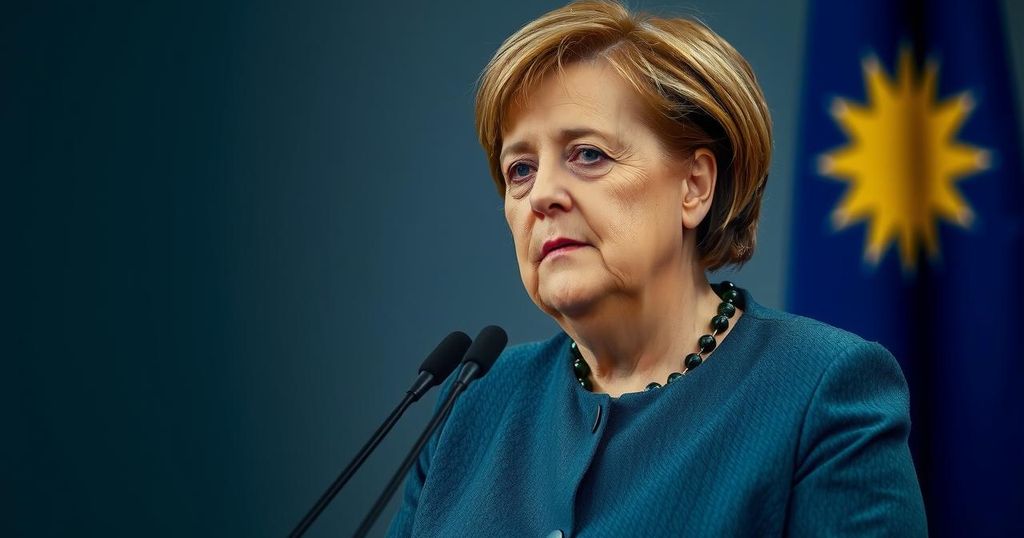Angela Merkel Reflects on Refugee Crisis and Russia Relations in New Memoir
Angela Merkel’s memoir, “Freedom,” released recently, offers her perspective on her 16 years as Chancellor, addressing her handling of the refugee crisis and relations with Russia. She defends her policies amid ongoing debates about their implications for Germany and Europe, particularly in light of recent geopolitical tensions and internal political changes.
Angela Merkel, the former Chancellor of Germany, offers a robust defense of her leadership in her newly released memoir, “Freedom.” In light of her tenure, Merkel reflects upon key issues such as the refugee crisis and Germany’s relationship with Russia, addressing accusations of her leniency and the rise of far-right politics. Amid ongoing international conflicts, her autobiography provides insights into her policies and decisions during pivotal moments of her 16 years in office, indicating her belief in the importance of engagement and the dilemmas faced during her leadership.
The context of Angela Merkel’s reflections is significant, considering the tumultuous events that followed her departure in 2021, including the war in Ukraine and shifts in German politics. Merkel’s tenure was marked by her management of the refugee crisis, which became a defining aspect of her leadership, drawing criticism for her open-door policy. Additionally, her foreign policy decisions, particularly regarding Russia, continue to evoke debate as Europe navigates geopolitical tensions and energy insecurities, especially following the recent cessation of relations with Russia post-Ukraine’s invasion.
In summary, Angela Merkel’s memoir sheds light on her decision-making processes and the aftermath of her policies. By affirming her approach to migration and diplomatic relations with Russia, she emphasizes her belief in the necessity of cooperation and pragmatic solutions. Her reflections prompt ongoing discussions about the current trajectory of German and European politics, especially against a backdrop of rising far-right sentiment and international instability.
Original Source: jordantimes.com




Post Comment